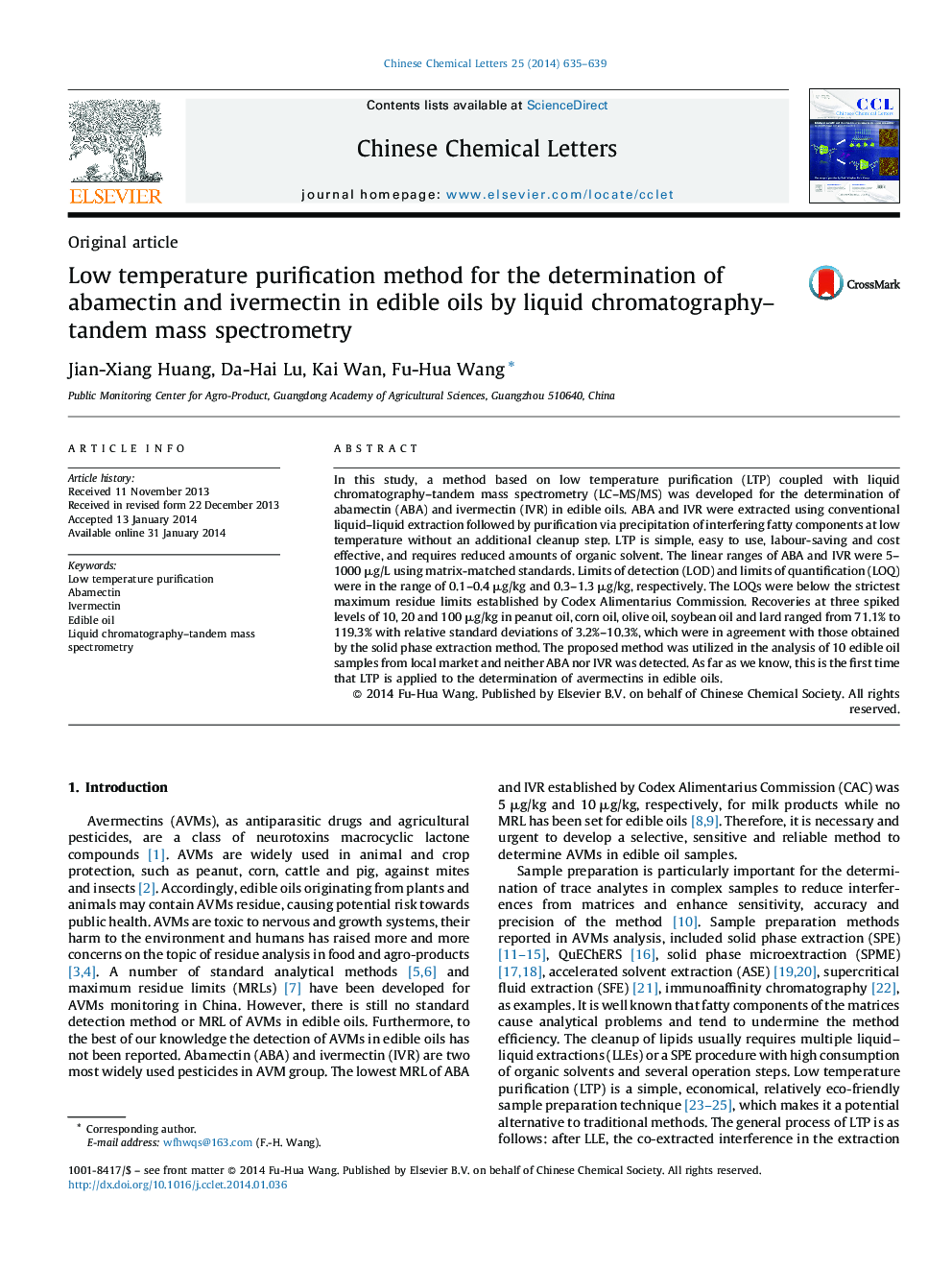| Article ID | Journal | Published Year | Pages | File Type |
|---|---|---|---|---|
| 1254192 | Chinese Chemical Letters | 2014 | 5 Pages |
In this study, a method based on low temperature purification (LTP) coupled with liquid chromatography–tandem mass spectrometry (LC–MS/MS) was developed for the determination of abamectin (ABA) and ivermectin (IVR) in edible oils. ABA and IVR were extracted using conventional liquid–liquid extraction followed by purification via precipitation of interfering fatty components at low temperature without an additional cleanup step. LTP is simple, easy to use, labour-saving and cost effective, and requires reduced amounts of organic solvent. The linear ranges of ABA and IVR were 5–1000 μg/L using matrix-matched standards. Limits of detection (LOD) and limits of quantification (LOQ) were in the range of 0.1–0.4 μg/kg and 0.3–1.3 μg/kg, respectively. The LOQs were below the strictest maximum residue limits established by Codex Alimentarius Commission. Recoveries at three spiked levels of 10, 20 and 100 μg/kg in peanut oil, corn oil, olive oil, soybean oil and lard ranged from 71.1% to 119.3% with relative standard deviations of 3.2%–10.3%, which were in agreement with those obtained by the solid phase extraction method. The proposed method was utilized in the analysis of 10 edible oil samples from local market and neither ABA nor IVR was detected. As far as we know, this is the first time that LTP is applied to the determination of avermectins in edible oils.
Graphical abstractLow temperature purification (LTP), for cleanup of fatty interferences, was applied to the determination of abamectin and ivermectin in edible oils coupled with liquid chromatography–tandem mass spectrometry. LTP was simple, easy to use and effective with low consumption of organic solvents.Figure optionsDownload full-size imageDownload as PowerPoint slide
